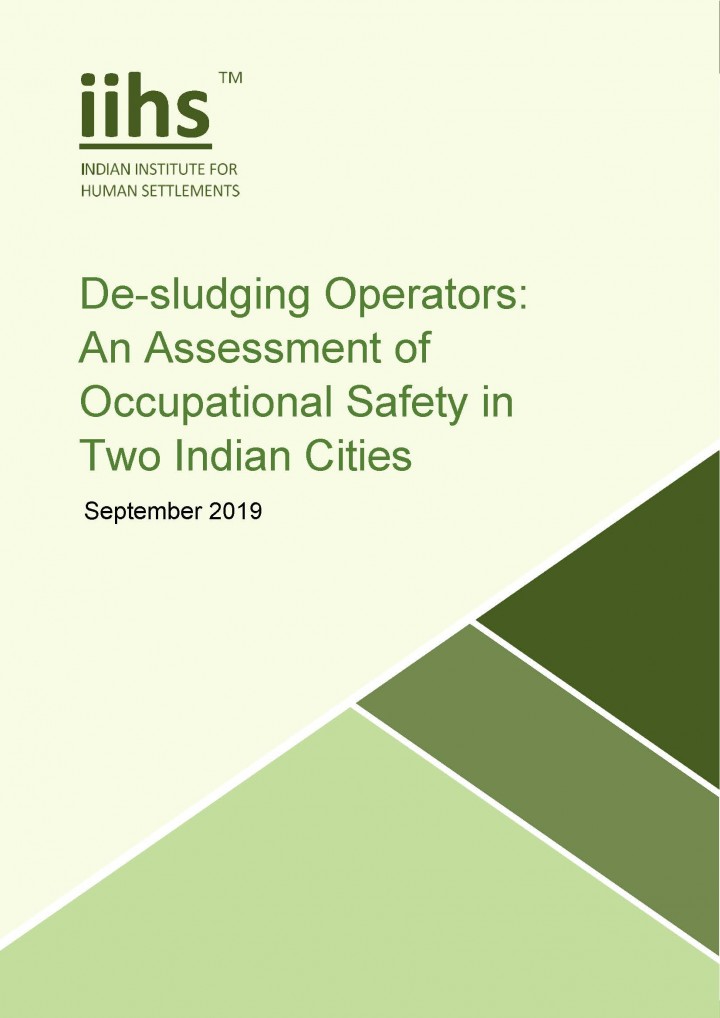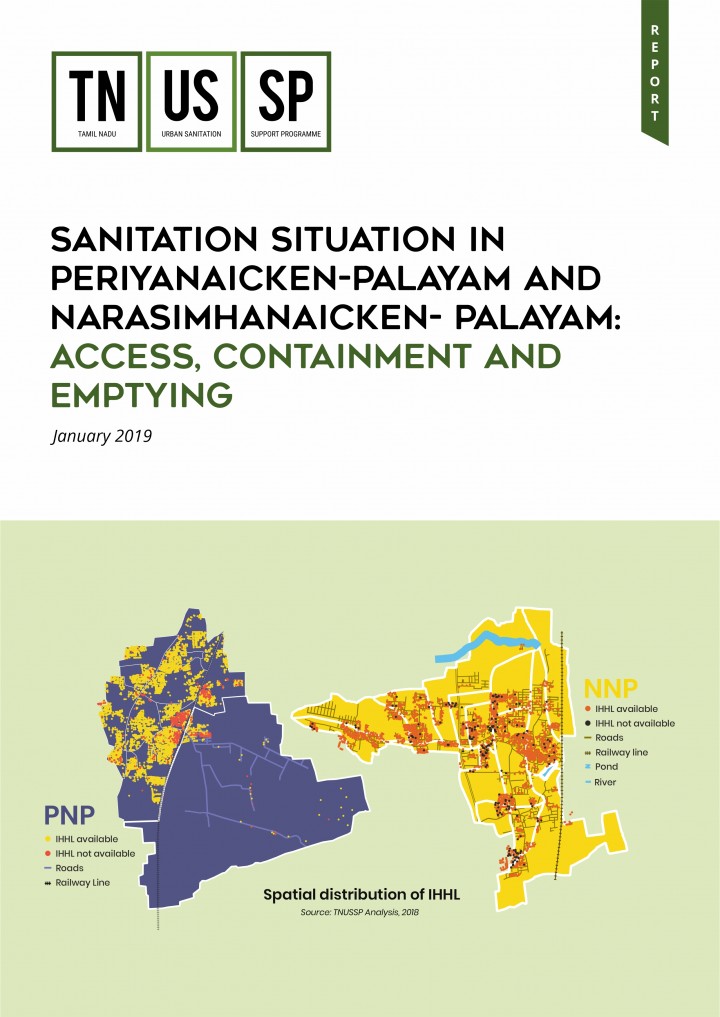Searching for information on Sanitation Workers?
The Sanitation Workers Knowledge + Learning Hub is the best source for all current news, trends, articles and updates on sanitation workers rights around the world.
Stigma is used as a tool for motivating health behaviour change, often effective at budging otherwise hard-to-shift behaviour.
Shame-induced stigma most damages those already vulnerable, reinforcing health disparities.
Global health use of shaming tactics can inadvertently worsen health-damaging stigma, especially for those with the least power.
These effects, that drive additional health …
Gathering and acting on feedback from affected communities is a key means to identify potential triggers for change during the design and implementation of humanitarian programmes. This study is focused on user-centred design (UCD), an approach often used outside the humanitarian sector to design products and services that are tailored to the needs and preferences of end-users and are created …
Our vision is a world in which every child affected by an emergency wherever she/he is – at home or displaced; in schools; and in health institutions – has the right and access to safe water supply and adequate sanitation facilities and is enabled to perform basic hygiene.
This operational guidance outlines the role Humanitarian WASH will play within Save the Children 2019-2021 strategy. The …
It is well recognised that good communication and participation are prerequisites for successful community engagement in development and humanitarian action. We need more sustained dialogue and meaningful interaction with the people we serve so that they can take informed decisions and play an active or lead role in the aid they receive. So how do we get better at working alongside people …
Using Cash and Voucher Assistance (CVA) for hygiene items may give women and girls more freedom of choice to select the sanitary materials they prefer, are used to and feel most comfortable using. Using vouchers instead of distributions was also found to increase beneficiary satisfaction, be more convenient and reduce security risks associated with distributions, increase revenue of local …
This tool includes checklists for (1) household latrines, (2) communal latrines, including public (e.g. markets) and institutional (e.g. schools) latrines to assess whether household and communal latrines meet minimum requirements for being inclusive and MHM-friendly – including being accessible for persons with disabilities.
This SFD was developed for Ugie located within the Elundini LM (Figure 3). Other towns in Elundini LM include Maclear and Mount Fletcher (Joe Gqabi District Municipality, 2018). Ugie developed from a mission station at Gatberg and was established and named in 1863 by William Murray after the Ugie River in Scotland. The town was founded in 1885 (Eastern Cape, 2021). The town serves as an activity …
Safe collection, handling and transport of fecal sludge is an integral part of septage management. Limited attention has been paid to the safe collection, transport, disposal and treatment of human excreta from septic tanks. A study was conducted in two cities in India to understand the current desludging practices, the underlying reasons for current occupational practices and hazards, relevance …
TNUSSP carried out a geographic information system (GIS) based sanitation mapping of households and establishments in the two town panchayats of PNP and NNP with an aim to primarily understand the nature of containment and on-ground desludging practices to enable more effective planning. It also included the preparation of GIS-linked database of properties (with households and establishments) …
The MHM Lab’s aim is simple: to transform menstruation into a matter of pride and help women and girls stop suffering in silence. By enabling safe and hygienic menstrual management (MHM), as well as safe reuse and/or disposal of menstrual hygiene products, the Lab allows women and girls to regain control of a basic but fundamental part of their well-being. Creating a welcoming yet efficient …
The Equality and Non-discrimination (EQND) and Community-led Total Sanitation (CLTS) Handbook provides practical guidance for ensuring that behaviour change interventions leave no one behind. Drawing on experience from across the sector, this handbook is specifically targeted towards those implementing or supervising CLTS interventions at the community level. Key features include a summary of …
‘Do-no-harm’ means taking every precaution to ensure people will not be adversely impacted by the programme, including inadvertently. Whilst it is understood that ‘community problem, community solution’ should remain core to community-led approaches, facilitators also have an ethical obligation to step in if initiatives pose a risk to the rights, dignity or well-being of people who may be …
WSSCC's Global Sanitation Fund (GSF) Programme in Nepal was financed by WSSCC and implemented by UN Habitat Nepal. This evaluation brief seeks to provide a summative and a formative forward-looking analysis of the Programme. The analysis is framed around the Organisation for Economic Co-operation and Development's Development Assistance Committee (OECD DAC) evaluation criteria of relevance, …
In September 2019, the Government of Nepal declared the country ‘open defecation free’ (ODF). Leading up to this milestone, the Government of Nepal and other sector partners focused on the challenging Terai plains - the ‘last mile’ of Nepal’s Sanitation Campaign. This Case Study documents the key success factors from WSSCC's Global Sanitation Fund programme in Nepal, executed by …
Voices of youth, women, older persons, persons with disabilities, persons living with HIV, transgenders and LGBTIQ, sex workers, manual scavengers, Dalits, Adivasis, farmers, urban shanty dwellers, urban homeless, migrants and refugees. Leave No One behind is the core principle of the SDGs and the 2030 Agenda. A consultation was held in India in late 2019 involving 14 groups identified by Niti …
The guidelines set out essential actions that humanitarian actors must take in order to effectively identify and respond to the needs and rights of persons with disabilities who are most at risk of being left behind in humanitarian settings.
The recommended actions in each chapter place persons with disabilities at the centre of humanitarian action, both as actors and as members of affected …
Cap-Haïtien is located in Haiti, in the Caribbean region. It is Haiti’s second largest city after its capital, Portau-Prince, with an estimated population of 404,766 in 2017 (IDB, 2017). The city of Cap-Haïtien is located within the commune of Cap-Haïtien, which is divided into three communal sections (sections communales), the smallest official administrative unit.
For the SFD graphic, …
The Canton of Alajuela is located within the province of Alajuela in the north-central part of Costa Rica, covering an area of approximately 388.43 km². The canton is geopolitically sub-divided into 14 districts, holding a population of approximately 254,567. Eighty eight percent of its population is living in urban areas. There are approximately 45 slums reported in the canton, housing about …
One of the more challenging aspects of developing pasture and grazing land is providing access to a reliable water supply for livestock. In some cases, existing streams, creeks, or ponds provide drinking water for the livestock. When a surface water source is not available, wells can be drilled and pumps installed to provide water for the animals. In some instances, surface water may be …
Sustainable and affordable supply of clean, safe, and adequate water is one of the most challenging issues facing the world. Membrane separation technology is one of the most cost-effective and widely applied technologies for water purification. Polymeric membranes such as cellulose-based (CA) membranes and thin-film composite (TFC) membranes have dominated the industry since 1980. Although …
Delivering safe and sustainable water supplies presents a fundamental challenge for an urbanising planet. Approximately 1.5 million people migrate to cities and their peri-urban fringes each week, and the fastest growth occurs in small to intermediate sized cities where infrastructure and governance capacity lag (Birkmann et al., 2016). Piped water systems are struggling to keep pace. In this …
Since the establishment of the International Scheme to Evaluate Household Water Treatment Technologies (the Scheme) in 2014, WHO has been independently evaluating the performance of household water treatment (HWT) technologies in removing microbial contaminants from drinking-water. The results of the evaluation are intended to guide procuring United Nations (UN) agencies and Member States in HWT …








































